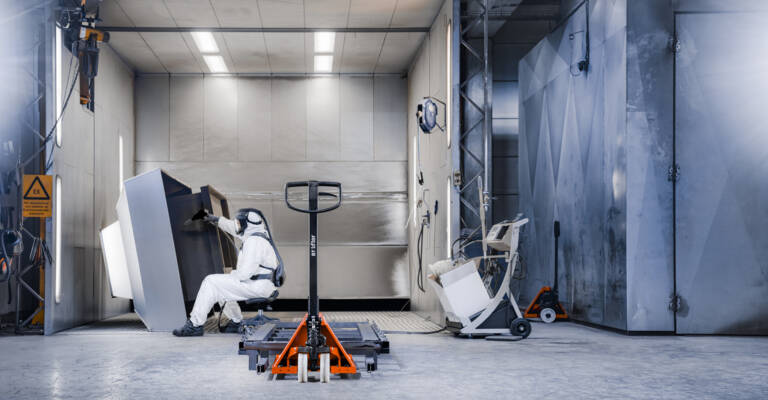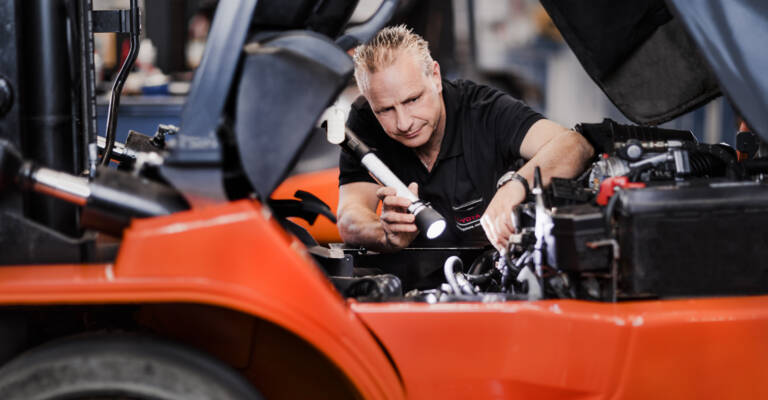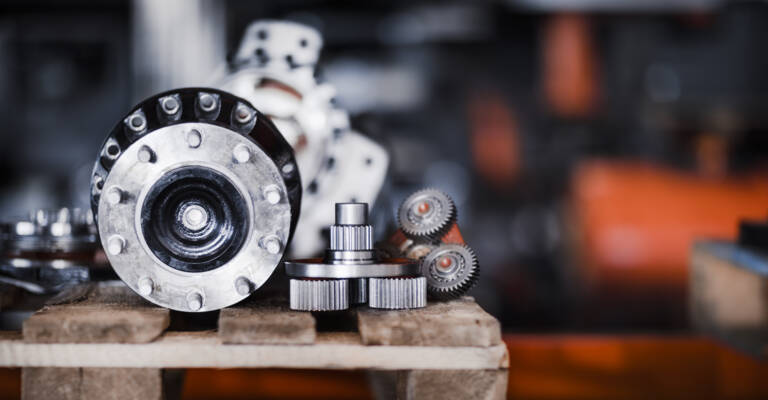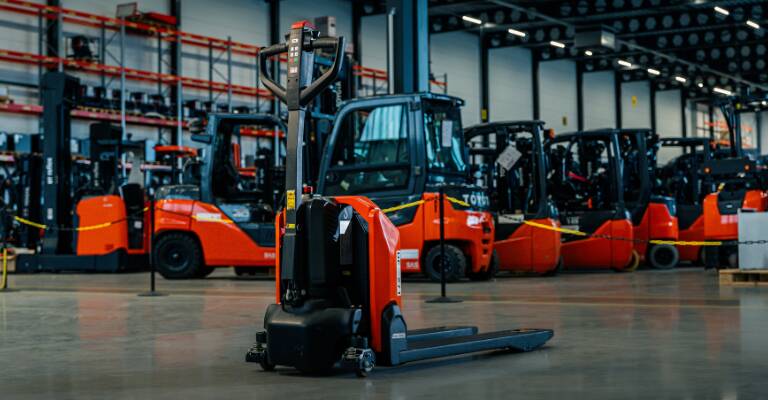
Hand pallet trucks: versatile and long-lasting
The choice of the fork wheels depends on the type of application, usage intensity and the type of surface the truck will operate on. Find the right type and material for your application.
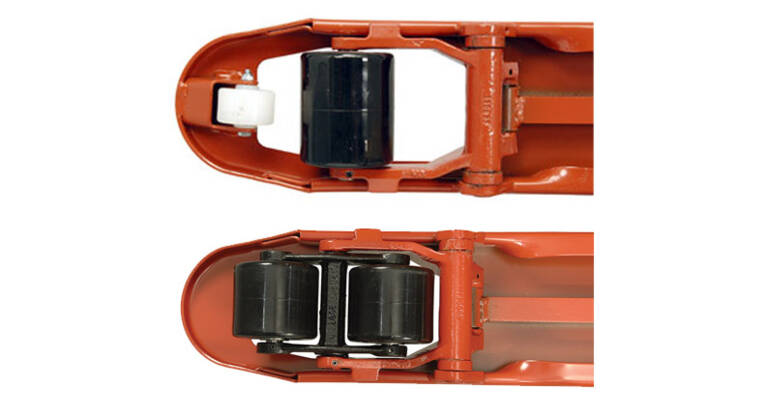
Even floors
Single fork wheels are preferred on even floors and enables easy turning. The wear on a single wheel, however, is higher. A single wheel is always combined with a climbing wheel at the fork tip for easy handling of pallets on the long side.
Uneven floors
Bogie fork wheels are better suited for uneven floors. They offer a smoother drive and more stability. The load is distributed between several wheels, decreasing the point load and point friction and causing less individual wheel wear.
Our fork wheel types
Nylon
- Easy rolling wheel on hard, even floors
- Hard and durable
- Best choice when the load is heavy
Polyuretane
- Preferred when a low noise level is required
- Makes heavy loads slightly harder to pull
- Suits all kinds of application
Iron
- Suitable for heavy industry
- Easy rolling wheel that prevents chips or small items from sticking to the wheel
- Very long life time
Powerthane
- Noiseless travel
- Better durability than a rubber wheel
- High wear resistance
Rubber
- Very quiet
- Provides good grip on wet/slippery floor
- Antistatic version to minimizes electrostatic discharge
Need a wheel?
Visit our parts shop and buy the parts you need.
Powered pallet trucks: pedestrian and high-speed versions
The choice of the drive and fork wheels depends on the type of application, usage intensity and the type of surface the truck will be used on.
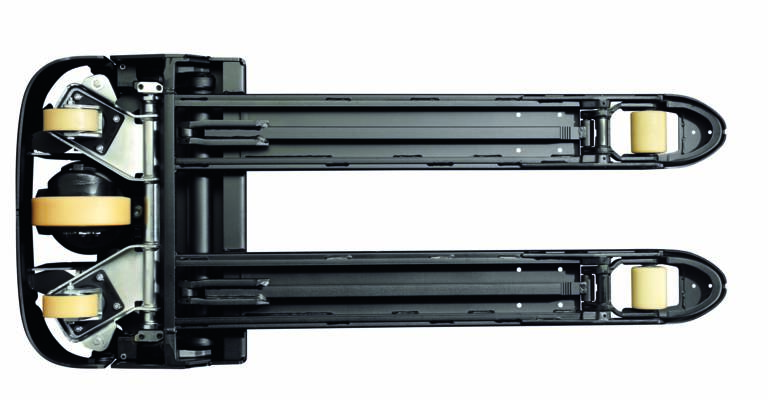
Castor wheel
When the truck turns or passes a bump, pressure increases on one castor wheel as a result of compression of the spring. Thanks to the torsion tube, the other spring will compress by an identical amount. The truck remains stable and will never start to rock and travel like a 'walking duck', a classic phenomenon when spring forces do not interact.
Drive wheel
Because of the central placement of the drive wheel, the machine does not pitch when the wheel regains its grip after spinning, e.g. on wet floors and ramps. With a drive wheel placed off-centre, considerable lateral movement can occur in these situations.
Fork wheel
Possible to choose between single or bogie fork wheel. Single for easy manoeuvring and positioning for long side handling and Bogie for easy climbing on uneven surfaces and heavy loads.
Our fork wheel types
Prime
- Hard-wearing wheel that can handle very high loads
- Ideal choice in heavy-duty applications
Prime quartz
- Causes a sandpaper effect that
results in better grip - Excellent grip
Polyuretane
- Cheaper alternative designed for less intensive applications
- Suits all types of applications
Friction
- Provides excellent grip, even on
moist surfaces - Does not leave marks on floors
Need a wheel?
Visit our parts shop and buy the parts you need.
